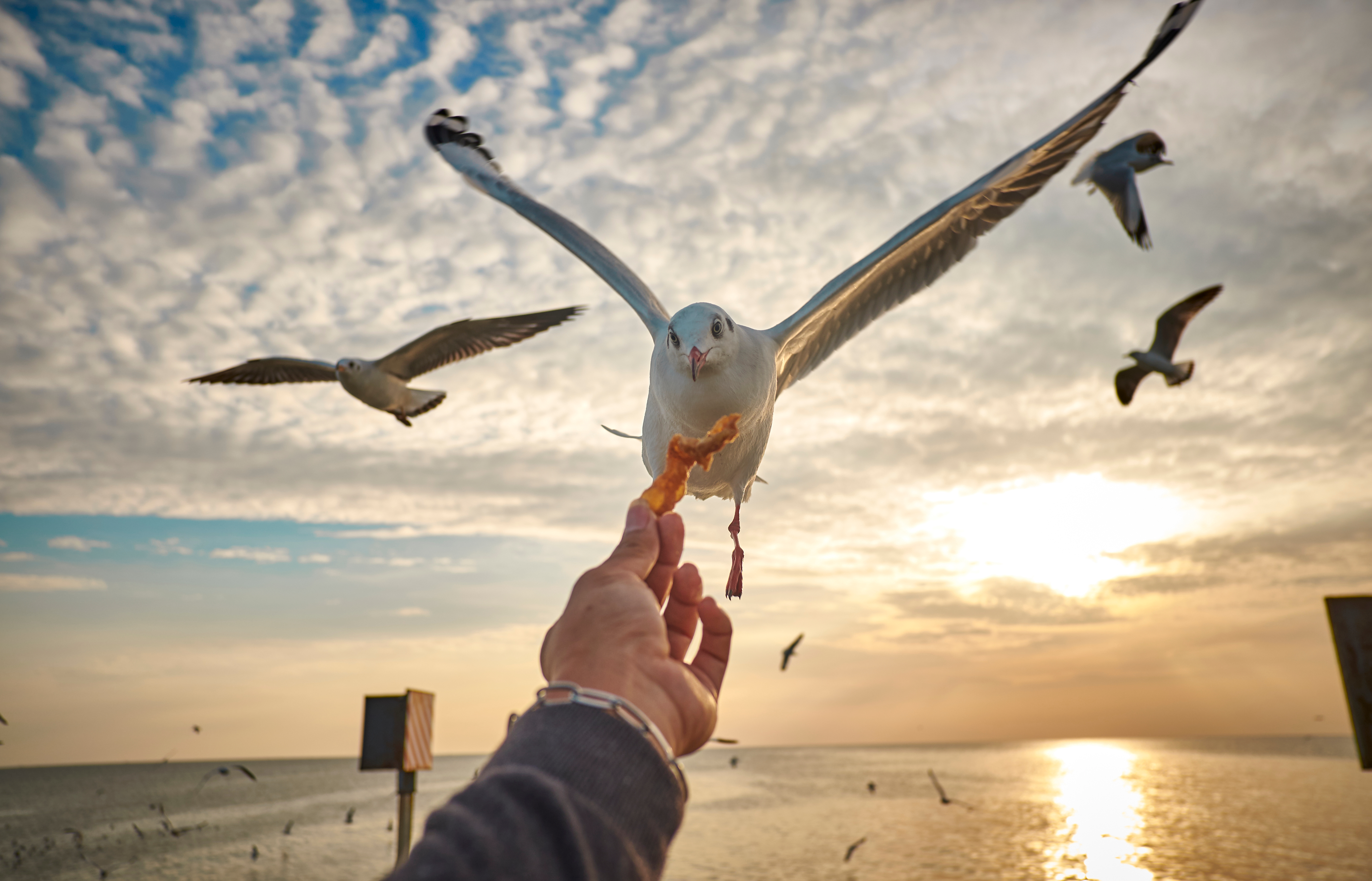Share This Article
ArraySahar Adatia.
It was the bizarre and brazen incident that saw a 26-year-old man from England end up in an aggressive altercation with a seagull after it tried to steal the McDonald’s meal he had just started to scoff down.
The bird attack took place in Plymouth city centre where the hungry man had settled himself, ready to indulge in his fast food lunch.
When the seagull launched, trying to swiftly scavenge his meal, the man grabbed the bird and forcefully bit into it before hurling it to the ground, evidently injuring the creature.
Unbeknownst to the attacker, however, the incident took place right in front of police officers who happened to be in the area dealing with a homeless person, and were left shocked watching the cruel act unfold.
As one would expect, they promptly approached the man and arrested him.
Speaking to a local news outlet about the act of animal abuse, a police spokesperson from Charles Cross Neighbourhood Police condemned the man’s brash behaviour upon the bird.
“He sunk his teeth into it before throwing it to the floor,” the police spokesperson said.
“Officers had seen the incident and immediately went over and detained and took details from him.”
It is understood the man also confessed to police that he was under the influence of drugs at the time of the offending.
“The man volunteered the information that he was under the influence of drugs and it was decided that he should be taken to Derriford Hospital for treatment,” the police spokesperson said.
“The seagull was clearly injured by the incident but flew off before we were able to check on its welfare.
“We don’t know what happened to it afterwards.”
Charles Cross Neighbourhood Police Send Timely Caution on Animal Cruelty to Members of the Public
Following the shameless attack, Charles Cross Neighbourhood Police took to Twitter to post a timely reminder that such conduct is unlawful and will not be tolerated.
“Love them or loathe them, seagulls are protected under the Wildlife & Countryside Act 1981,” the team wrote.
“The bird flew away before we could check its welfare. The crime is under review #unacceptable.”
In England, ignorance that such birds are protected is no defence under the law.
It is illegal – unless you have a licence – to take, injure or kill wild birds or interfere with their nest or eggs.
If found guilty, the maximum penalty is six months in jail or a £5,000 fine.
Law, Offences & Penalties of Harming Animals that are a Threatened Species, Part of Threatened Ecological Community or Protected Animal
To many of us, seagulls are the chip-stealing, winged psychopaths we’d rather not deal with, especially when longing for a bit of peace and quiet over lunch at the beach.
Nevertheless, being a native bird, they are protected under the law.
In NSW, the Biodiversity Conservation Act 2016 outlines the law on harming protected animals – which include birds of any species, their eggs, and their young.
Specifically, according to section 2.1 of the Act, it is against the law to harm or attempt to harm:
a) An animal that is of a threatened species, or
b) An animal that is part of a threatened ecological community, or
c) A protected animal.
The monetary penalties you can face for an offence will depend on the species that has been injured.
In the case of a seagull, being a protected animal, the maximum penalty for injuring or attempting to injure is a “Tier 4” penalty.
A Tier 4 penalty means, in the case of a corporation, a maximum monetary penalty of $110,000.
In the case of an individual, it means a maximum monetary penalty of $22,000.
Questions on this topic of law? Get in touch with our criminal lawyers Sydney based today for a chat.
What Should You Do If You Find Injured Wildlife?
Here in Australia, if you find an injured wild animal, the RSPCA advises to contact the nearest veterinarian or wildlife carer organisation as soon as possible so that it can receive suitable treatment.
Wildlife become easily stressed and agitated by handling, so it also advised to seek guidance from an expert before handling an injured animal.
The RSPCA also recommends to minimise the amount of exposure the injured animal has to people and loud noises so as not to distress it further, while it is advised not to attempt feeding or treating it unless you have specialist knowledge or training.
Book a Lawyer Online
Make a booking to arrange a free consult today.
Call For Free Consultation
Call Now to Speak To a Criminal Defence Lawyer
Over 40 Years Combined Experience
Proven SuccessAustralia-Wide
Experienced LawyerGuarantee
 (02) 8606 2218
(02) 8606 2218
 (02) 8606 2218
(02) 8606 2218














